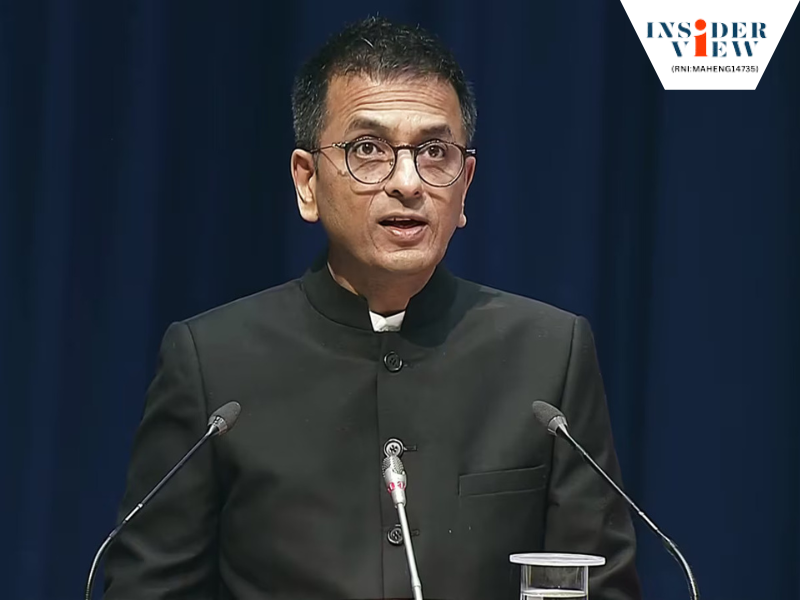New Delhi, 28 Jan (HS): DY Chandrachud, Chief Justice of India, said on Sunday that the Supreme Court will soon transition its digital data to a cloud-based architecture and will make its rulings available to the people for free.
Speaking to a gathering of justices and other legal luminaries as the Apex Court celebrates its 75th anniversary, he stated that in order for the Supreme Court to stay relevant as an institution, it must recognise obstacles and engage in uncomfortable talks.
The digital Supreme Court reports will make decisions available to the public for free in digital form. All 519 volumes of Supreme Court reports published since 1950, containing 36,308 cases, will be made available in digital format, bookmarked, user-friendly, and open access. Today, Prime Minister Narendra Modi kicked off the celebrations. The Supreme Court’s new website was also inaugurated.
“Today is a historic event… People gave this court to themselves through the constitution. The Constitution is about mutual respect for fellow citizens,” Chief Justice Chandrachud stated in his remarks.
The Supreme Court conducted its first sitting on January 28, 1950. “What’s the future… We are also on the verge of building a war room equipped with technology that would allow the Supreme Court to monitor real-time judicial data from around the country,” said Chief Justice Chandrachud. “1.23 lakh passes were created digitally with Suswagatam. The Supreme Court will migrate all of its files to a secure and sovereign cloud-based architecture,” he stated. Suswagatam is internet software that enables users to register and seek e-passes to attend court sessions or meet with attorneys, among other things.
According to Chandrachud, an increasing number of women professionals are holding prominent positions across the country. “Earlier, the law was an exclusive male profession, but now women make up 36% of the district judiciary. Over 50% of recently selected applicants were women, he noted, and 41% of legal clerks who help judges are women.
Last Monday, the Supreme Court named 11 women attorneys as senior advocates. “In the near future, we must address structural concerns impacting the courts, such as case backlogs, outmoded processes, and the culture of delay. Our efforts as judges and administrators must be directed on ensuring the dignity of the district judiciary, which serves as residents’ initial point of contact.?
The Chief Justice of India stated that in order for our institution to stay relevant, we must acknowledge issues and initiate challenging debates. First, we must transition from an adjournment culture to one of professionalism; second, we must ensure that the length of oral arguments does not indefinitely delay judicial outcomes; third, the legal profession must provide a level playing field for first-generation lawyers – men, women, and others from marginalized segments who have the will to work and the potential to succeed; and fourth, let us start a discourse about extended vacations and whether options such as flexitime for attorneys and judges are feasible, said Chief Justice Chandrachud.



Leave a Reply